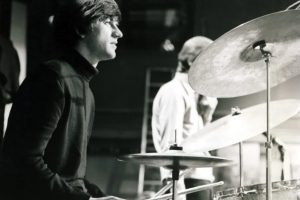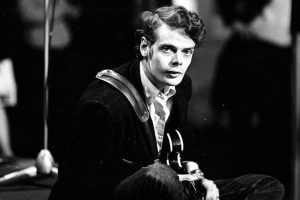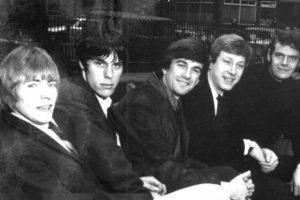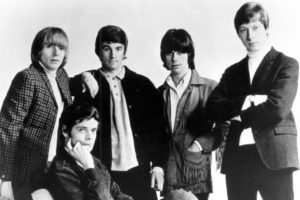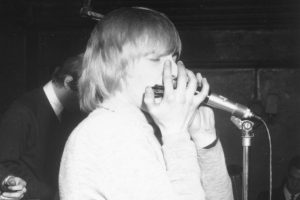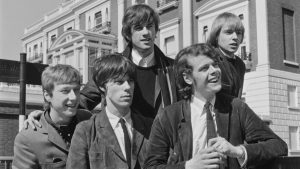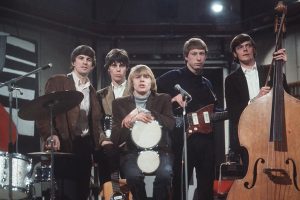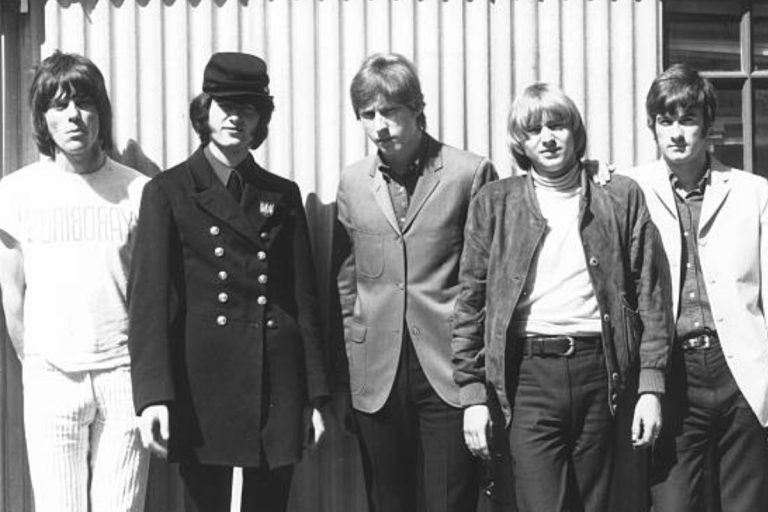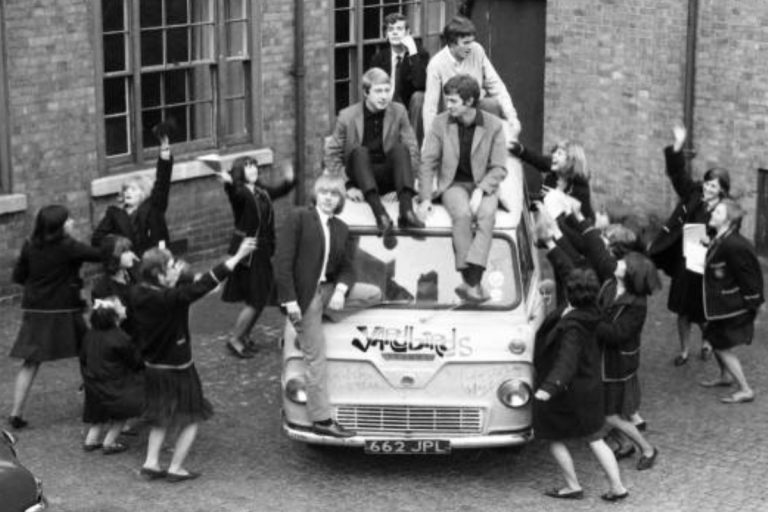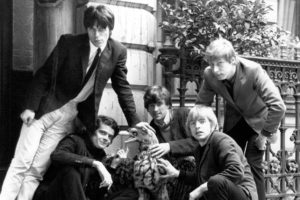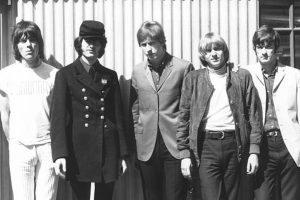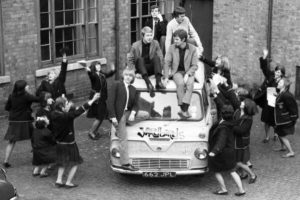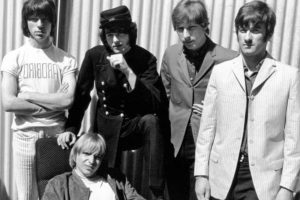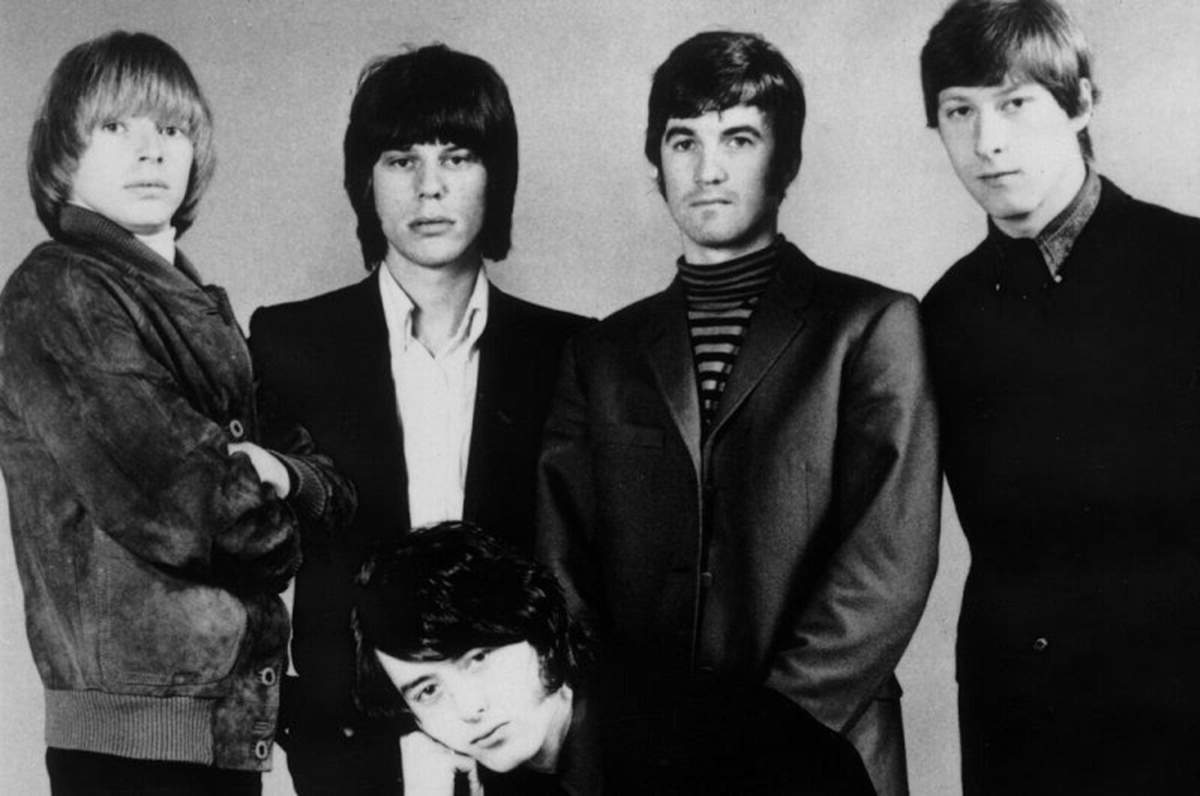
Unveiling the Magic Behind Iconic Tracks
Every great song has a story—a glimpse into the creative process, the emotions, and the cultural moment that birthed it. For The Yardbirds, their greatest hits are not just milestones in rock history but vivid snapshots of their evolution as artists and innovators. Songs like “For Your Love,” “Shapes of Things,” and “Train Kept A-Rollin’” aren’t just tracks; they’re narratives that reflect the band’s boldness, experimentation, and knack for pushing boundaries.
Understanding the stories behind these songs gives listeners a deeper appreciation of their artistry. From groundbreaking guitar techniques to chart-topping success and internal band dynamics, The Yardbirds’ music encapsulates a journey of creativity and conflict that shaped modern rock. This article dives into the creation, impact, and enduring legacy of their most iconic hits
For Your Love: A Game-Changer and a Rift Maker
“For Your Love” stands as a pivotal moment in The Yardbirds’ career—a song that catapulted them into commercial success while simultaneously causing internal strife. Written by Graham Gouldman, the track marked a stark departure from their blues roots, embracing a more pop-oriented sound that broadened their appeal. Its sophisticated arrangement, featuring a harpsichord intro and layered harmonies, was both innovative and catchy, making it an instant hit.
However, not everyone in the band welcomed this shift. Eric Clapton, deeply committed to the authenticity of the blues, found the song’s direction at odds with his artistic values. His dissatisfaction with the pop-centric approach ultimately led to his departure, making way for Jeff Beck to join the lineup. While Clapton’s exit was a loss, it also marked the beginning of a new era of experimentation for The Yardbirds.
“For Your Love” achieved commercial success, climbing to No. 3 on the UK Singles Chart and breaking into the US Top 10. Its popularity showcased the band’s ability to adapt and innovate, setting the stage for their transition into a broader, more experimental sound. The song remains a testament to the power of creative evolution, even amidst internal conflict
Shapes of Things: Pioneering Psychedelic Rock
Released in 1966, “Shapes of Things” is widely regarded as one of the first true psychedelic rock songs—a genre-defining track that pushed the boundaries of what rock music could be. Written during a period of global political unrest, the song carries subtle anti-war undertones, reflecting the countercultural sentiments of the time.
Musically, “Shapes of Things” was revolutionary. Jeff Beck’s innovative guitar work, characterized by feedback, sustain, and distortion, created a soundscape that was both raw and otherworldly. His use of experimental techniques not only defined the track but also influenced generations of guitarists.
The lyrics, with lines like “Please don’t destroy these lands / Don’t make them desert sands,” hinted at ecological and anti-war themes, resonating deeply with a generation grappling with issues of war and environmental degradation. Combined with its forward-thinking musical approach, the song became a rallying cry for change and creativity.
“Shapes of Things” achieved significant commercial success and critical acclaim, reaching the Top 10 in the UK and the US. It solidified The Yardbirds’ reputation as trailblazers, bridging the gap between traditional rock and the emerging psychedelic movement.
Heart Full of Soul: Merging Cultures Through Sound
“Heart Full of Soul” marked another milestone in The Yardbirds’ evolution, introducing Eastern musical influences into Western rock. Released in 1965, the track was one of the first to incorporate sitar-like sounds, achieved not with an actual sitar but through Jeff Beck’s use of a fuzz guitar. This creative workaround showcased Beck’s ingenuity and the band’s willingness to experiment.
The song’s haunting melody and introspective lyrics resonated with audiences, earning it a spot in the Top 10 on both the UK and US charts. Its fusion of Indian-inspired sounds with a rock framework was groundbreaking, paving the way for future cross-cultural musical collaborations.
“Heart Full of Soul” also demonstrated The Yardbirds’ ability to innovate within the confines of a pop single. The combination of Keith Relf’s emotive vocals and Beck’s distinctive guitar playing created a track that was both commercially appealing and artistically ambitious. It remains a shining example of the band’s ability to blend accessibility with experimentation.
Train Kept A-Rollin’: Reviving a Classic
“Train Kept A-Rollin’” is a perfect example of The Yardbirds’ talent for reimagining classic tracks. Originally a jump blues song by Tiny Bradshaw, it was later covered by Johnny Burnette as a rockabilly hit. The Yardbirds took the song to new heights, transforming it into an electrifying rock anthem that became a staple of their live performances.
Their version of “Train Kept A-Rollin’” is driven by its relentless energy, propelled by Jeff Beck’s fiery guitar riffs and the tight rhythm section. The song’s dynamic arrangement, featuring stops and starts that built tension before releasing it in explosive bursts, made it a thrilling live experience.
Beyond its live impact, “Train Kept A-Rollin’” had a lasting influence on the development of hard rock and heavy metal. Its high-octane energy and emphasis on guitar-driven power laid the groundwork for future bands, including Aerosmith and Led Zeppelin, who both drew inspiration from The Yardbirds’ version.
The song’s enduring popularity is a testament to The Yardbirds’ ability to honor their musical roots while reinventing them for a new generation. It remains one of their most iconic tracks, celebrated for its innovation and sheer intensity.
A Legacy Written in Song
The stories behind The Yardbirds’ greatest hits reveal a band that was constantly evolving, pushing boundaries, and embracing change. From the commercial breakthrough of “For Your Love” to the groundbreaking experimentation of “Shapes of Things” and “Heart Full of Soul,” their music reflects a spirit of creativity and innovation that defined the 1960s.
As much as their songs are remembered for their melodies and riffs, they also tell the story of a band unafraid to take risks and reinvent themselves. The Yardbirds weren’t just performers—they were storytellers and pioneers, leaving a legacy that continues to inspire musicians and fans alike.
For those who listen closely, their music offers more than just entertainment—it provides a glimpse into the transformative power of art, reminding us of the timeless connection between creativity and cultural change.
